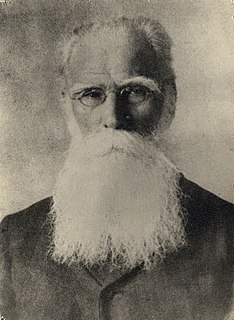 W
WKrišjānis Barons was a Latvian writer who is known as the "father of the dainas" thanks largely to his systematization of the Latvian folk songs and his labour in preparing their texts for publication in Latvju dainas. His portrait appeared on the 100-lat banknote prior to the Lat being replaced by the Euro in 2014, his being the only human face of an actual person on modern Latvian currency. Barons was very prominent among the Young Latvians, and also an important writer and editor.
 W
WErnests Brastiņš was a Latvian artist, amateur historian, folklorist and archaeologist. He is known as the founder and driving force behind the neopagan religion Dievturība, which he started in the 1920s and which was re-established after the fall of the Soviet Union.
 W
WAnšlavs Eglītis was a Latvian writer, journalist and painter who became a war refugee in 1944. He had prolific career as a novelist, and his later work often examined aspects of exile life.
 W
WNora Ikstena is a Latvian writer and cultural manager. She was born in Riga and studied philology and English language and literature at the University of Latvia. After a subsequent period of residence in New York City for further studies, she returned home and worked to establish the Latvian Literature Centre.
 W
WIvande Kaija was the pen name of Antonija Lūkina, Latvian writer and feminist, who fought for the independence of Latvia. Through public works and writing, Kaija advocated Latvians to donate assets to the "Gold Fund" which became the gold reserve of the country in 1920. Her public service was honored when she was bestowed the Order of the Three Stars in 1926. Though many of her works were destroyed during the Soviet period, they have seen a resurgence in recent years.
 W
WValdemārs Klētnieks, also known as Voldemārs Klētnieks and Valdis Klētnieks, was a Latvian published author and national Scout Commissioner for Latvia before World War II. When the Soviet Union occupied Latvia in 1940, the Latvian Scout Organization was banned. Klētnieks eventually fled Latvia for a displaced persons camp in Germany, where he remained for five years following the end of World War II. In 1950, he settled with his wife and children as refugees in the United States, where he continued to write books in the Latvian language and joined the Boy Scouts of America national staff.
 W
WLaura Katharina Marholm (1854–1928) was a Baltic-German writer of literary criticism, biographies about women, and novels. The main characters in her novels were women who felt fulfilled in marriage. Marholm was a New Woman feminist that wrote about feminist issues. Due to some of her beliefs, some other feminists did not consider Marholm to be among them. She believed that literature could be used to help gender relations. Some of Marholm's works were part of "feminist literary criticism" known as gynocriticism, 70 years before the term was coined, with much of that work being focused on Nordic women authors.
 W
WBerta Pīpiņa was a Latvian teacher, journalist, politician and women's rights activist. She was the first woman elected to serve in the Latvian parliament. Active in women's rights, during her time in the Riga City Council and the Saeima, she strove to enact laws and policies to promote women's equality and protect families. When Soviet troops occupied Latvia, she was deported to Siberia, her life was removed from encyclopedias, and she died in a gulag.